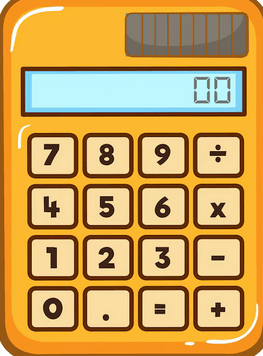Utility Bill Calculator
Why a utility bill calculator is simple to use? A utility bill calculator is a small tool. It takes numbers you already…
Why a utility bill calculator is simple to use? A utility bill calculator is a small tool. It takes numbers you already know. It will give you the cost. You can use it for electricity, gas, water, or all three. It will help you plan. It will make bills less scary.
How to calculate your utility bill (real-example)
Here’s what I’ve noticed when I teach this to students. An engineer is standing in front of a small class. He is holding a marker. He is saying, “Look. If you know the units and the rate, you can find the bill.” He shows a house. The house has lights, a fridge, a fan, and a TV. The students are watching. The engineer asks one student to read the meter. The student reads 420 kWh for the month. They all nod. This is real. You will do the same.
Step-by-step calculation — use this formula and follow along
First, know the formula.
Energy cost = units × rate per unit.
Subtotal = energy cost + fixed charge.
Tax = subtotal × tax rate.
Total bill = subtotal + tax.
Now we plug in real numbers. Follow with me.
- Units used = 420 kWh.
- Rate = $0.18 per kWh.
- Fixed monthly charge = $8.00.
- Tax = 6% (0.06).
Calculate energy cost.
420 × 0.18 = 75.60 dollars.
Add fixed charge.
75.60 + 8.00 = 83.60 dollars.
Find tax.
83.60 × 0.06 = 5.02 dollars (rounded).
Total bill.
83.60 + 5.02 = 88.62 dollars.
So the bill will be $88.62. The engineer writes each number on the board. The learner copies them down. They both smile. You will feel the same when you try this.
Why this method helps
You can change one number and see what happens. You can test using a different rate or using a different number of units. You can plan for a cold month or a hot month. From my own experience, small changes add up fast. A fan left on overnight will add dollars. A habit will create a trend.
Quick manual trick
If you want a fast check without a calculator, use this trick: round the rate up to an easy number. Multiply roughly. Add a small amount for fixed charges. Then add about 5–10% for tax. This gives a quick estimate. It will not be exact. It will be close enough to stop surprises.
FAQs
Q: What if my bill uses slabs, not one rate?
A: Break the usage into slabs. Multiply each slab’s units by its rate. Add them.
Q: Should I include late fees or rebates?
A: Yes. Add late fees to the total. Subtract rebates before tax if your bill says so.
Q: Can I use the same method for gas or water?
A: Yes. Use their units and rates. The math stays the same.
